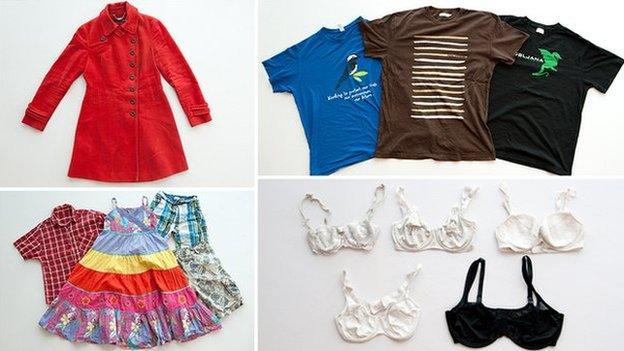Marie Kondo: Are charity shops feeling the effect?
- Published
The world-famous tidying wizard visited Woman's Hour in 2017
"We normally see an increase in donations in January, but this year it's been incredible," says Oya Altinbas, who manages Sue Ryder's Camden branch.
She says the charity shop is getting 30 large bags a day - double what it would normally expect - with many donors referencing Marie Kondo's Netflix series on de-cluttering your home as their inspiration.
The "KonMari" method encourages owners to discard items which no longer "spark joy", promising a clean mind as well as a clean home.
The Japanese tidying guru's 2014 book was a New York Times best-seller but since the launch of her Netflix series at the beginning of January she has taken the UK by storm.
Charities including Age UK, Barnado's and the British Heart Foundation said their shops had reported an increase in donations since the show's launch.
All acknowledged the increase could not be put down to a single cause and that charities tend to see a spike in donations in January anyway, with many people having a clear out and donating unwanted gifts after Christmas.
However, anecdotal evidence suggests the Marie Kondo de-cluttering trend could be one factor.
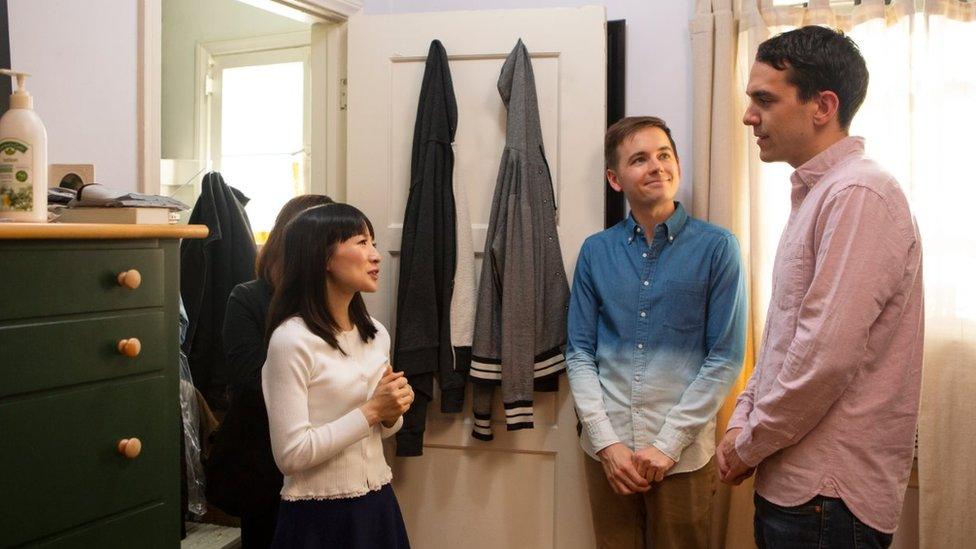
In her Netflix series Marie Kondo helps people de-clutter their homes
Maria Vicencio, who manages disability charity Scope's Cambridge branch, says she knows when someone has watched the show because she recognises Marie Kondo's "signature fold".
"I've had some really neat donations dropped off recently - immaculately folded," she says.
"I've spoken to a lot of friends and customers who are obsessed with the series."
The shop has seen a sudden influx of donations this month - in line with the charity as a whole, which has seen a year-on-year increase in donations to its shops of 5% over the past six weeks.
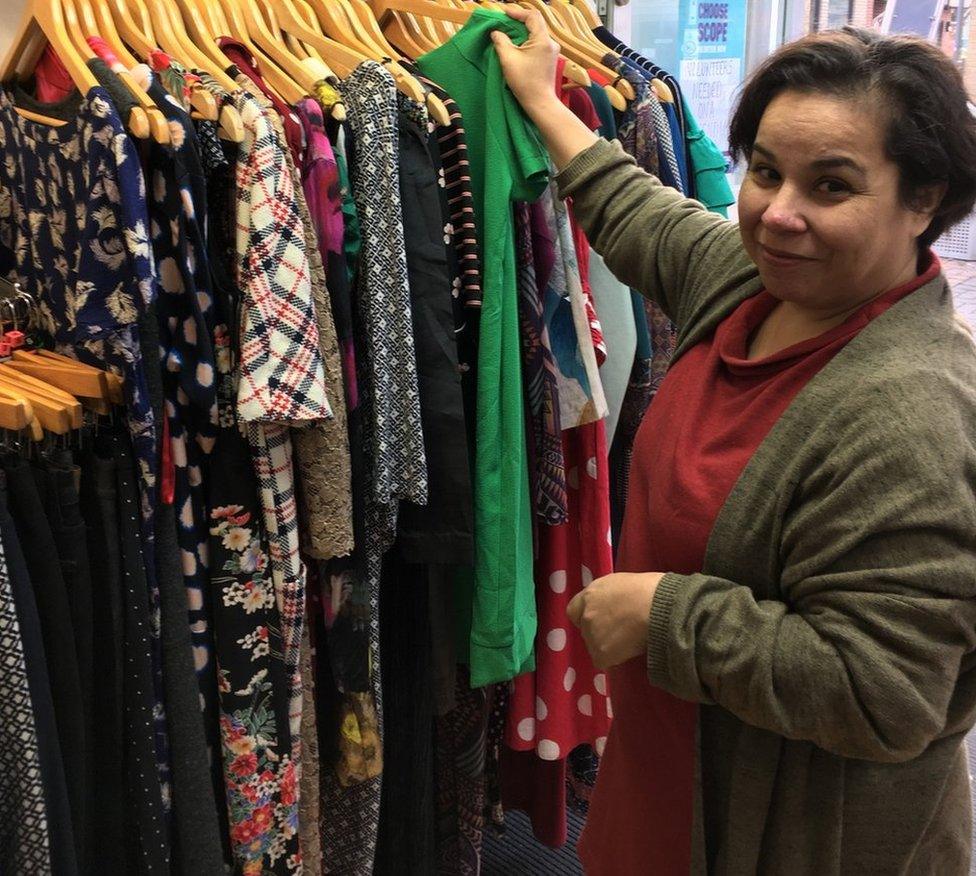
Maria Vicencio recognised Marie Kondo's "signature fold" after watching the show herself
Karen Bertram, manager at Salvation Army's Tamworth branch, is equally convinced the trend is having an impact.
"Before we would get about three donations a week," she says.
"The last few weeks we are getting six a day."
She says the shop is seeing lots of new donors, including one man who had cleared out his mum's whole house after watching the show.
Maria says just because donations may be a result of de-cluttering doesn't mean they aren't high quality.
A Prada top and Alexander McQueen shoes were among the donations to her Cambridge shop in the past few weeks.
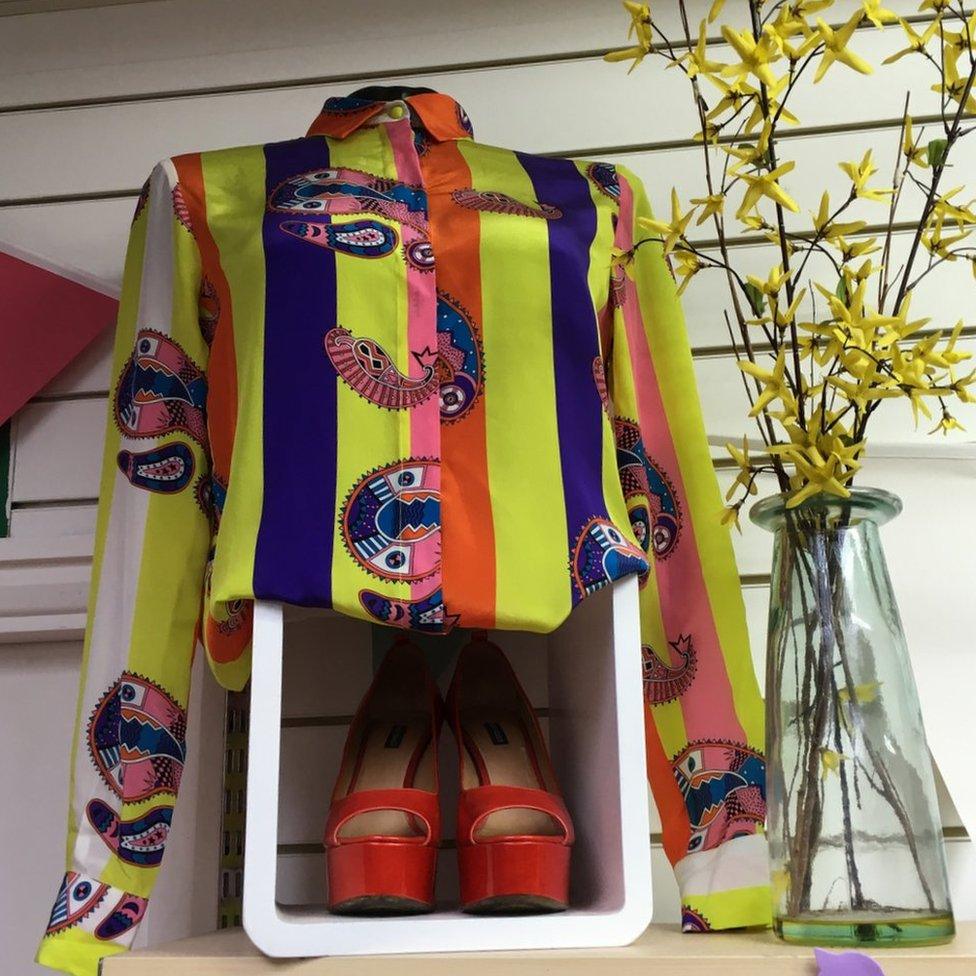
Maria says designer items have been among the donations to her shop in recent weeks
Anna Slawinska only discovered Marie Kondo a couple of weeks ago but she has already dropped three bin bags stuffed full of clothes and other unwanted items to her local charity shop and plans to donate more.
"I tend to over buy so the stuff I'm giving away is still in good condition," says the 35-year-old, who lives in Morecambe.
"Even though for me it no longer 'sparks joy', hopefully someone else will love it."
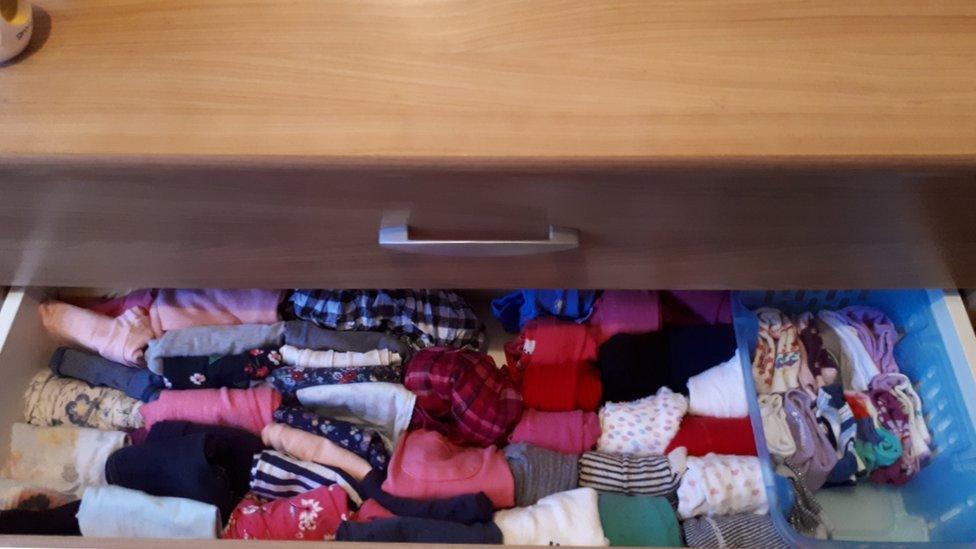
Anna has tried out Marie Kondo's "signature fold" herself
She says the Marie Kondo philosophy has encouraged her to donate more to charity.
"It was very enlightening for me. I struggle with being very messy and I never know what to throw out," she says.
"The idea of 'sparking joy' has helped me part with things I don't use anymore."

Sammi George has donated items including clothes, DVDs and books after watching the Netflix series
Sammi George, 27, from Surrey, is another Marie Kondo convert and was inspired to donate three bags full of belongings after watching the Netflix series.
"I would consider myself a very sentimental person, however my parents and boyfriend may correct me on that and use the term hoarder," she says.
"I have boxes and boxes of things I've kept over the years or bought because it was reduced and 'I'll use that one day.'
"I put everything I owned onto the bed and then one by one, picked each item up and asked myself if I would care whether it went missing or not."
Sammi says charity shops are the perfect destination for unloved belongings.
"The money raised is for a good cause and saves things being buried in a landfill somewhere!"
- Published17 January 2019
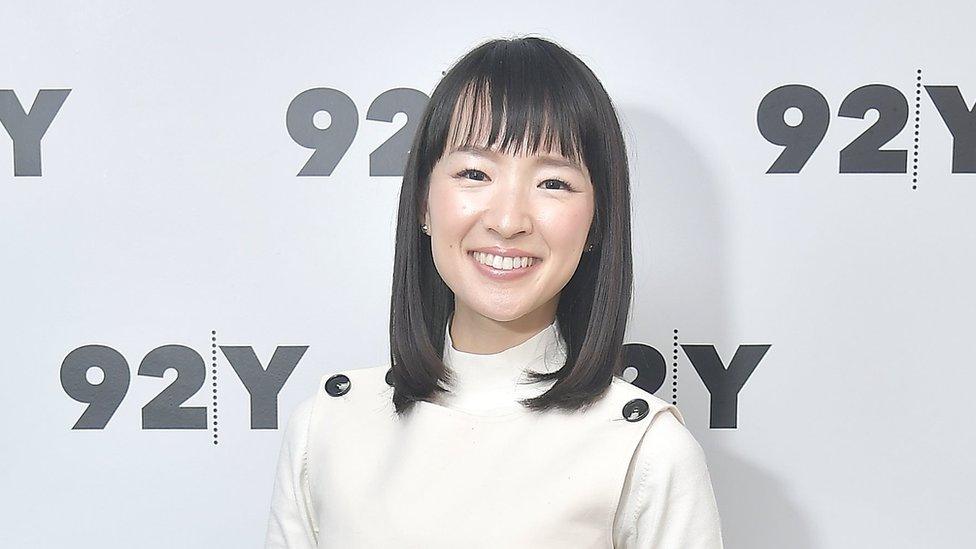
- Published29 January 2018
- Published11 February 2015
